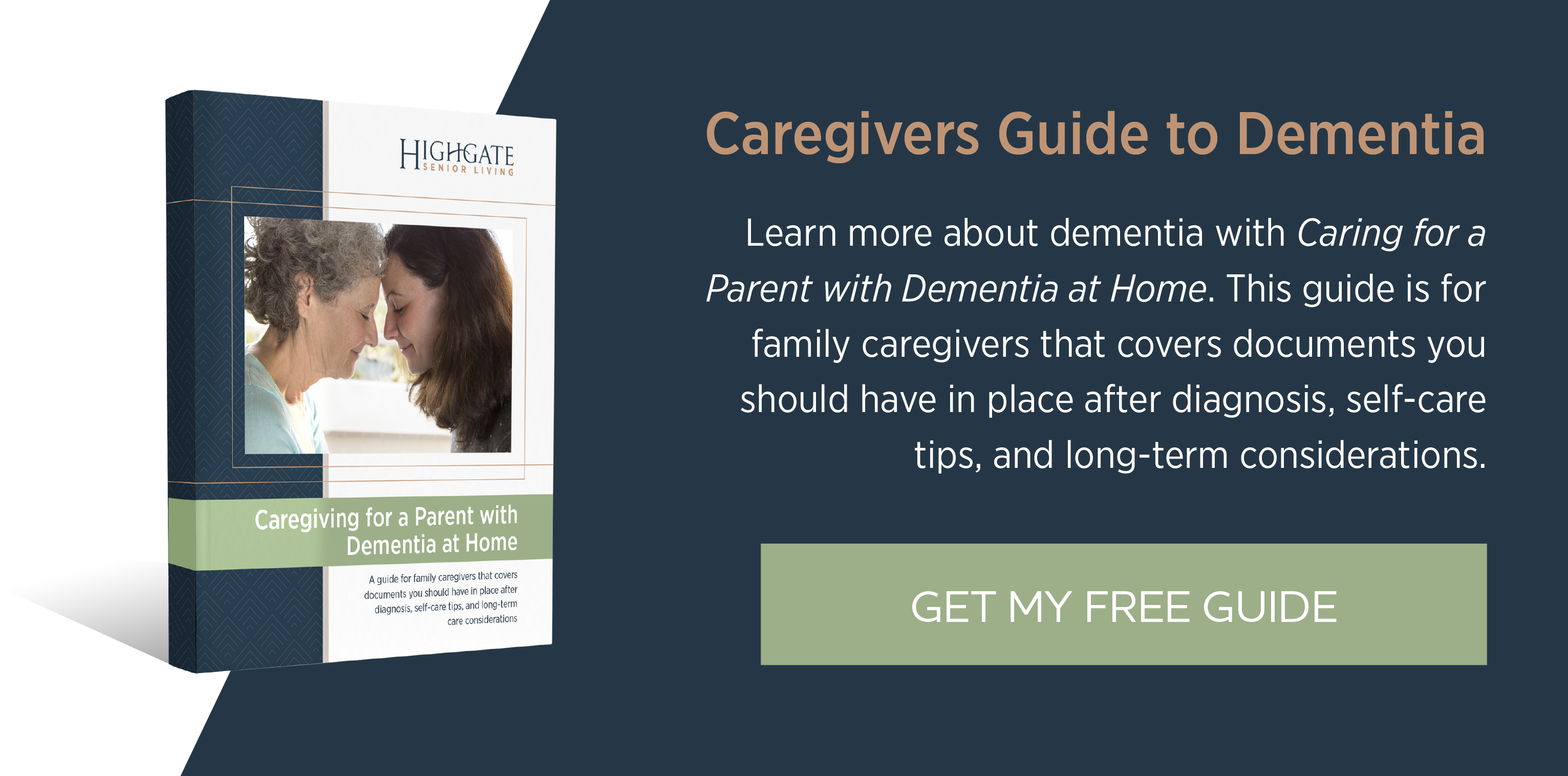
A dementia diagnosis is devastating. It can be the longest goodbye you’ll ever experience. With a dementia diagnosis can come changes in behavior and personality. No matter what amount of preparation you’ve done, emotions are heightened when it’s your own parent that can’t recognize the world around them.
There are no two ways about it. It's tough not to get frustrated and to remain positive when your happy Mom accuses you of lying or stealing from her, or your laid-back Dad develops a temper over the way you cooked dinner.
When conflicts arise, the most important thing to remember is that your loved one isn’t trying to be difficult. They may be scared. They may be frustrated and having difficulty verbalizing that to you. They might interpret your frustration as being angry with them.
Here are four caregiver tips for caring for someone with dementia to help you get through the toughest of days.
Caregiver Tip #1: Don’t Sweat the Small Stuff
It can be difficult to process the changes that are happening as your loved one’s dementia progresses. It can become increasingly difficult for someone with dementia to find the right words to finish a sentence, or to find misplaced items. But, pointing out their accidents can fuel an already frustrating situation.
Caregiver Tip #2: Give Positive Affirmation
In a world where the simplest of decisions can seem overwhelming, or where simple mistakes can seem like large failures, words of positive affirmation can provide the encouragement and support your loved one needs to get through the tough days.
Even if their shoes aren’t matching, or the buttons they’ve just buttoned don’t line up, find ways to turn a mistake into a success. For example, compliment your mom on the outfit she chose, or thank your dad for setting the table (even if there are a few items missing). As a caregiver, your parent’s gauge on a successful day is as much dependent on what you say as it is on what they accomplished.
Caregiver Tip #3: Focus on What They Can Remember, Not What They Can’t
Caregiving for a loved one with dementia is one of the most difficult responsibilities an adult child can take on. Unlike other disease processes, the mourning process of losing a loved one can begin when significant changes in memory occur; especially changes that may affect their ability to remember you or other family members.
Focus on what your loved one does remember, rather than what they can’t. Use photos to reminisce and encourage your loved one to tell stories about their happiest moments. Cherish the time you have to remember old memories and life accomplishments.
Caregiver Tip #4: Take a Break When You Need To
When emotions are heightened, sometimes the best thing you can do for your loved one, and for yourself, is to take a break. It may only need to be for a few minutes or a few hours, but taking time to recharge prevents caregiver burnout. If family or friends are unable to help you, a respite stay at a memory care community can give both you and your loved one a much needed break.






